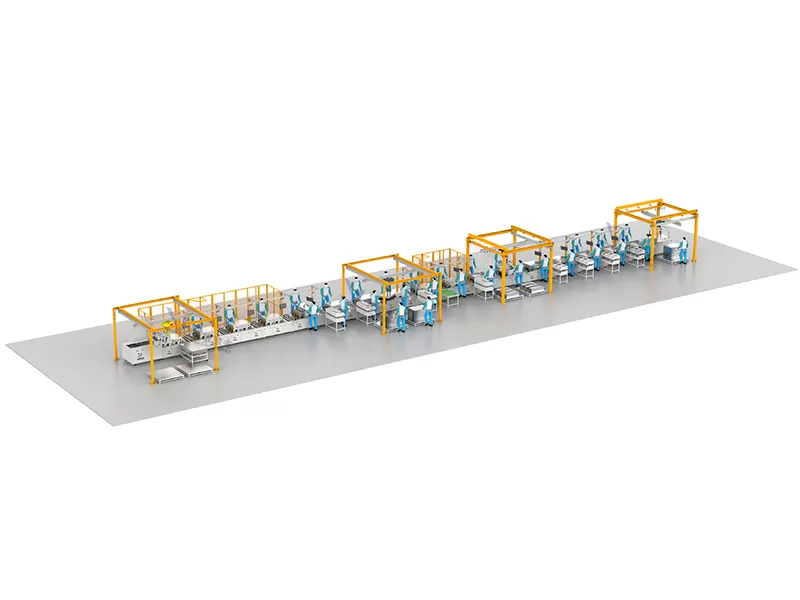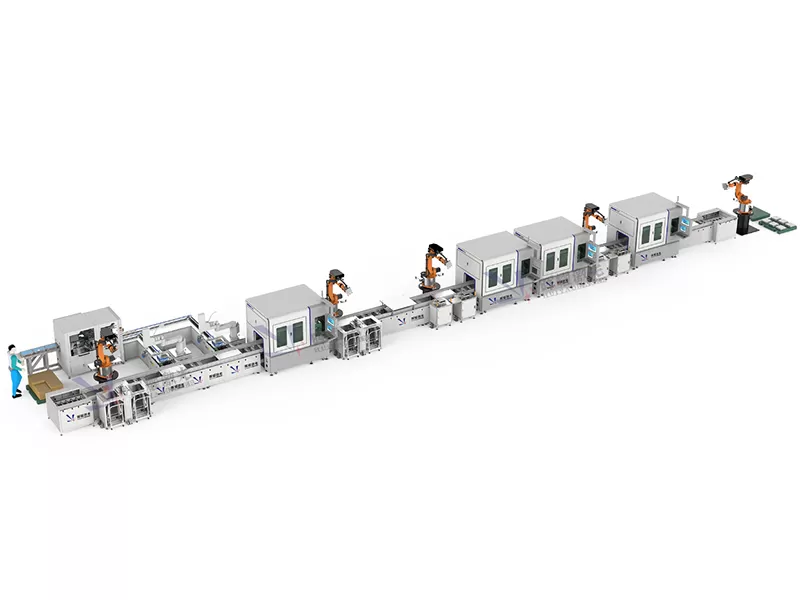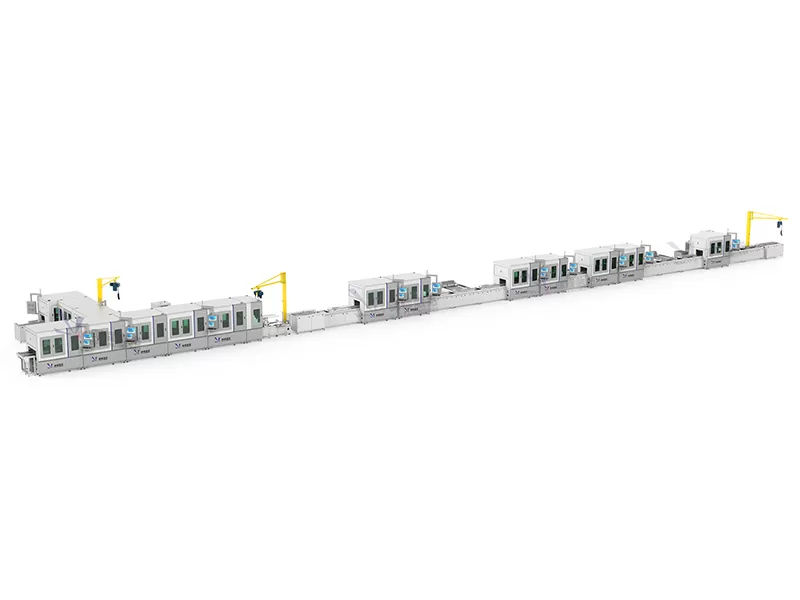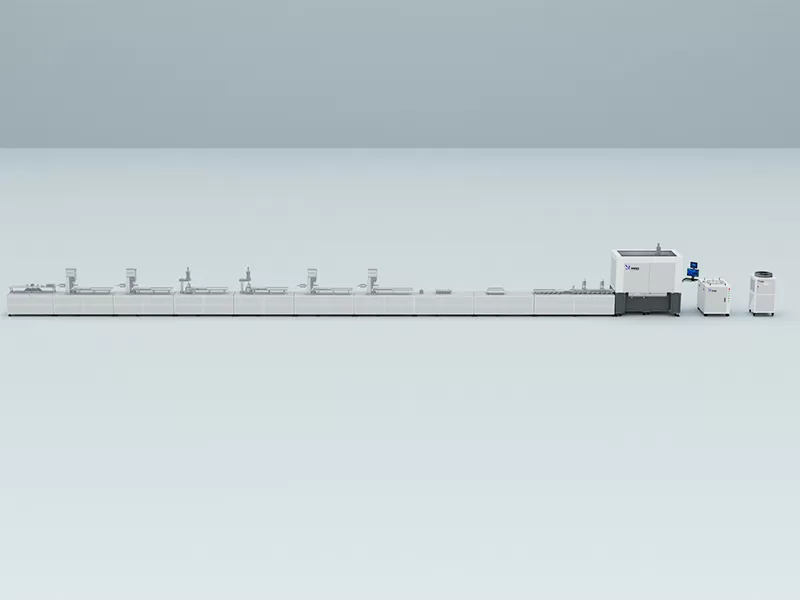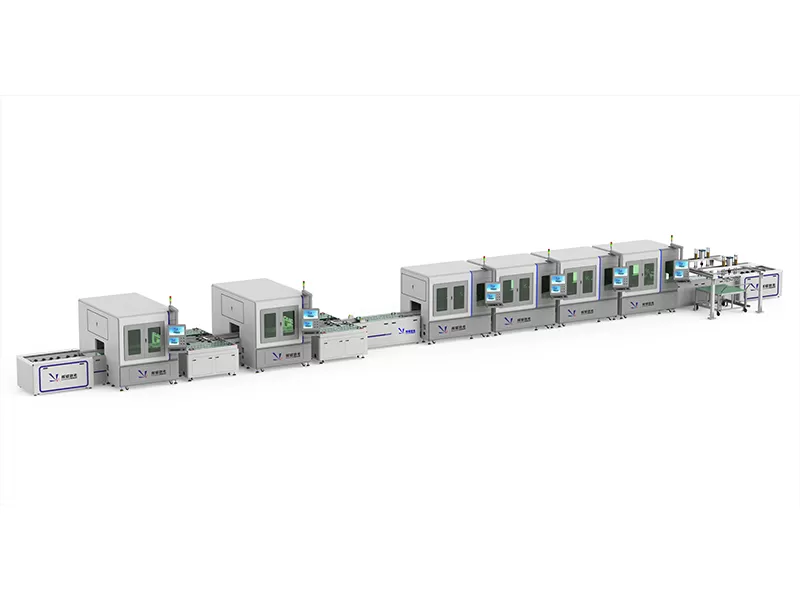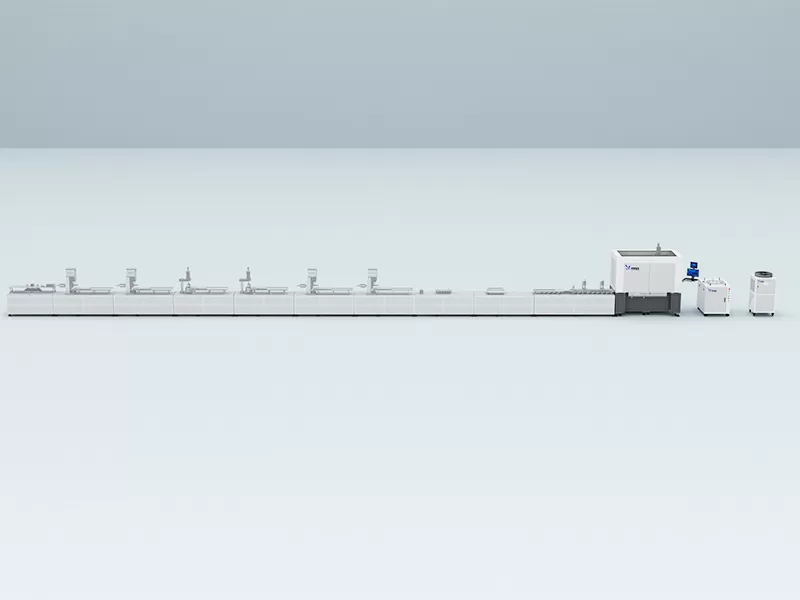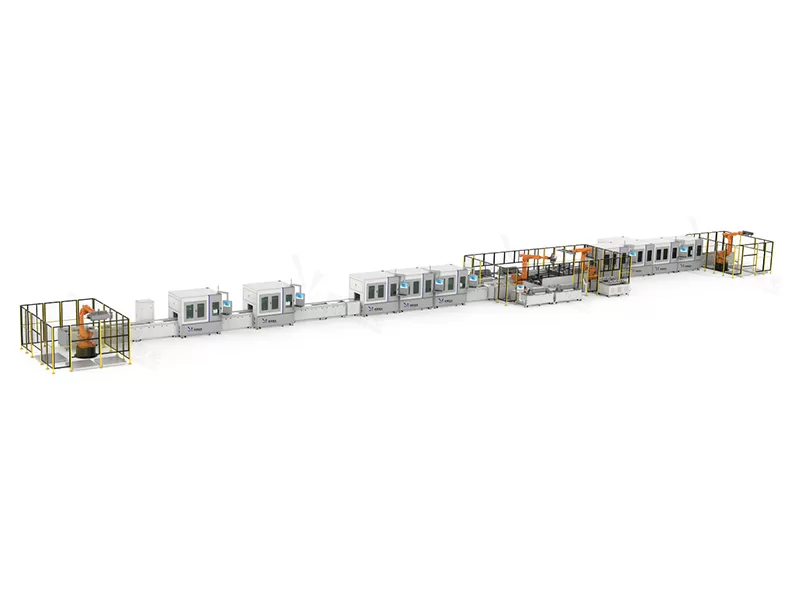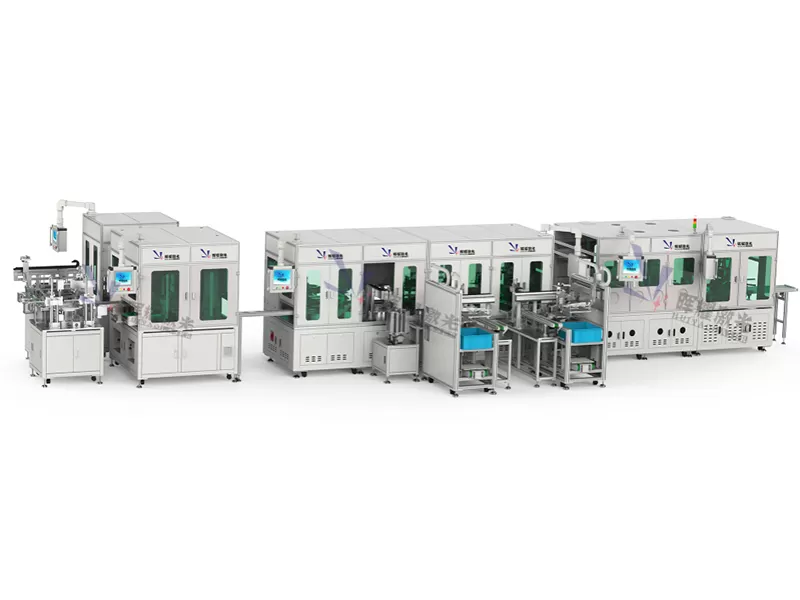As the world transitions towards sustainable energy solutions, the demand for high-performance lithium battery packs continues to soar. At the heart of this burgeoning industry lies a meticulously orchestrated assembly process, where individual lithium-ion cells are transformed into powerful energy storage systems.
| Battery Pack Types | Prismatic Battery Module PACK Assembly Line |
| Cylindrical Battery Module PACK Assembly Line |
| Pouch Battery Module PACK Line |
| Blade Battery Module PACK Line |
| Key Processes | Cell Selection and Voltage Testing |
| Cell Assembly and Welding |
| Assembly and Welding Quality Control |
| Solution | Project Turnkey Solution |
| Services | Weekly: Inspect welding systems, alignment mechanisms, and cooling systems. |
| Monthly: Calibrate vision and testing equipment. |
| Quarterly: Comprehensive diagnostics of the entire line. |
| Applications | Battery Smart Factory Solution |
| EV Smart Factory Solution |
| ESS Smart Factory Solution |
| Laser Applying Solution |
| Smart Warehouse |
Cell Selection and Voltage Testing
Objective: Ensure each lithium-ion cell meets stringent quality and performance standards.
Process:
Test individual cells for critical parameters such as voltage, capacity, and internal resistance.
Sort and grade cells based on test results to eliminate potential imbalances.
Select only cells that meet the established criteria for assembly.
Cell Assembly and Welding
Objective: Configure selected cells into the desired arrangement with robust electrical connections.
Process:
Arrange cells into the specified configuration using skilled technicians and advanced robotic systems.
Interconnect cells using advanced welding or bolting techniques to minimize resistance and potential failure points.
Assembly and Welding Quality Control
Objective: Ensure the integrity and reliability of cell connections.
Process:
Implement inline testing and inspection at every stage to verify the quality of welds or bolts.
Confirm that each connection meets high standards for electrical conductivity and mechanical strength.
Wiring and Bus Bar Integration
Objective: Facilitate efficient electrical current flow within the battery pack.
Process:
Integrate wiring and bus bars designed to handle the pack's electrical load.
Install these components with precision to minimize resistance and ensure effective power transfer.
Battery Management System (BMS) Installation and Testing
Objective: Monitor and regulate the battery pack's performance.
Process:
Install the BMS to oversee individual cells or modules.
Conduct rigorous testing to verify the BMS's functionality and calibration, ensuring optimal performance and safety.
Pack Performance Testing
Objective: Validate the assembled battery pack's performance under various conditions.
Process:
Subject the battery pack to tests evaluating capacity, cycle life, thermal behavior, and safety characteristics.
Approve only packs that meet or exceed specified performance criteria for further assembly.
Insulation and Structural Housing
Objective: Protect internal components and ensure safe operation.
Process:
Encapsulate the battery pack in a robust structural housing.
Incorporate insulation materials and thermal management systems to maintain optimal operating temperatures and dissipate heat generated during charging and discharging cycles.
Final Quality Control and Packaging
Objective: Ensure the battery pack meets industry standards and is ready for deployment.
Process:
Perform comprehensive quality control checks to verify compliance with relevant standards and regulations.
Securely package the approved battery pack for shipment to its intended application, such as powering electric vehicles, storing renewable energy, or supporting industrial operations.


